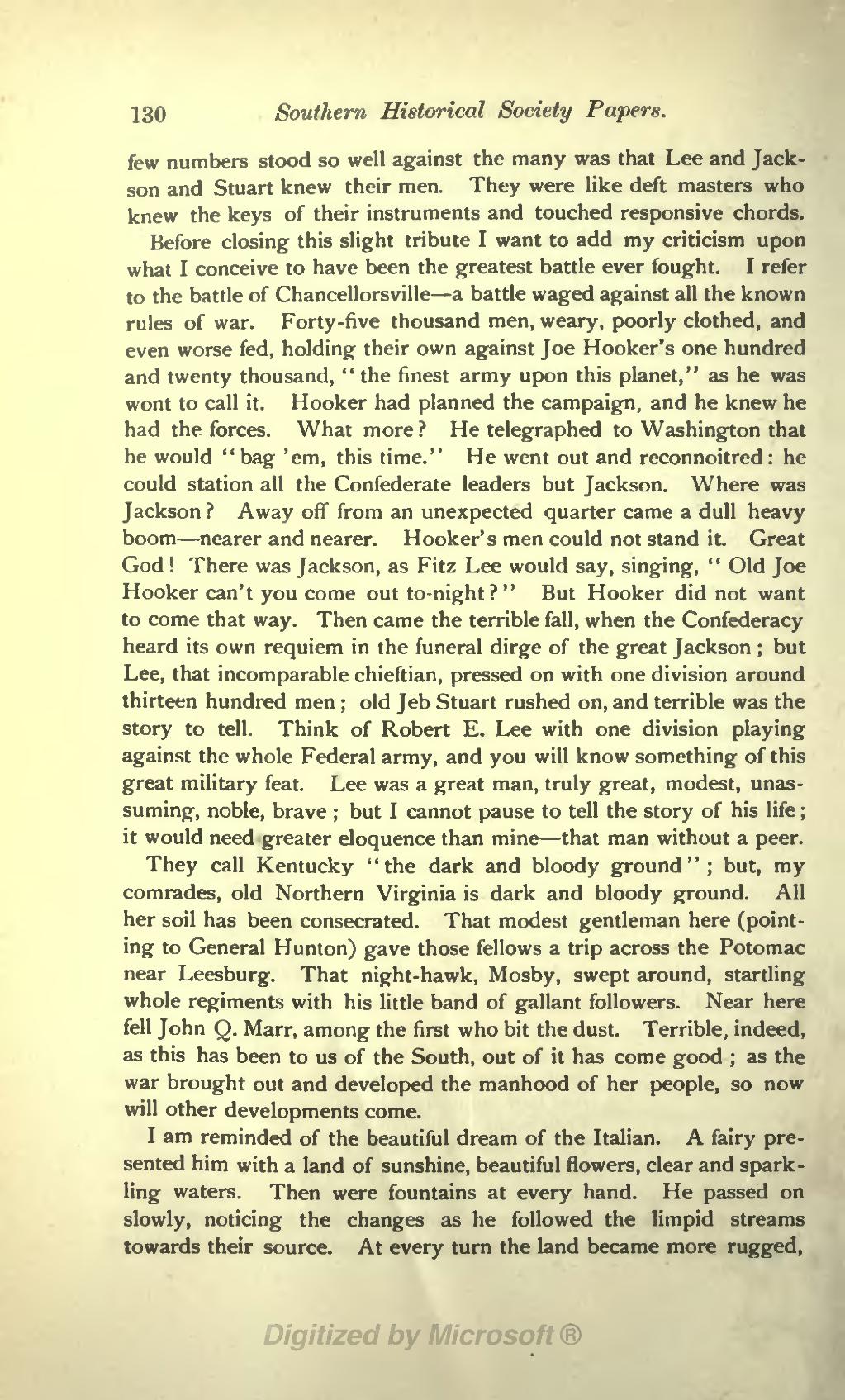130 Southern Historical Society Papers.
few numbers stood so well against the many was that Lee and Jack- son and Stuart knew their men. They were like deft masters who knew the keys of their instruments and touched responsive chords.
Before closing this slight tribute I want to add my criticism upon what I conceive to have been the greatest battle ever fought. I refer to the battle of Chancellorsville a battle waged against all the known rules of war. Forty-five thousand men, weary, poorly clothed, and even worse fed, holding their own against Joe Hooker's one hundred and twenty thousand, " the finest army upon this planet," as he was wont to call it. Hooker had planned the campaign, and he knew he had the forces. What more ? He telegraphed to Washington that he would "bag 'em, this time." He went out and reconnoitred: he could station all the Confederate leaders but Jackson. Where was Jackson ? Away off from an unexpected quarter came a dull heavy boom nearer and nearer. Hooker's men could not stand it. Great God ! There was Jackson, as Fitz Lee would say, singing, " Old Joe Hooker can't you come out to-night?" But Hooker did not want to come that way. Then came the terrible fall, when the Confederacy heard its own requiem in the funeral dirge of the great Jackson ; but Lee, that incomparable chieftian, pressed on with one division around thirteen hundred men ; old Jeb Stuart rushed on, and terrible was the story to tell. Think of Robert E. Lee with one division playing against the whole Federal army, and you will know something of this great military feat. Lee was a great man, truly great, modest, unas- suming, noble, brave ; but I cannot pause to tell the story of his life ; it would need greater eloquence than mine that man without a peer.
They call Kentucky "the dark and bloody ground"; but, my comrades, old Northern Virginia is dark and bloody ground. All her soil has been consecrated. That modest gentleman here (point- ing to General Hunton) gave those fellows a trip across the Potomac near Leesburg. That night-hawk, Mosby, swept around, startling whole regiments with his little band of gallant followers. Near here fell John Q. Marr, among the first who bit the dust. Terrible, indeed, as this has been to us of the South, out of it has come good ; as the war brought out and developed the manhood of her people, so now will other developments come.
I am reminded of the beautiful dream of the Italian. A fairy pre- sented him with a land of sunshine, beautiful flowers, clear and spark- ling waters. Then were fountains at every hand. He passed on slowly, noticing the changes as he followed the limpid streams towards their source. At every turn the land became more rugged,
